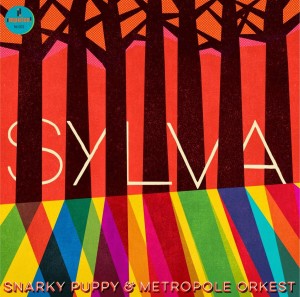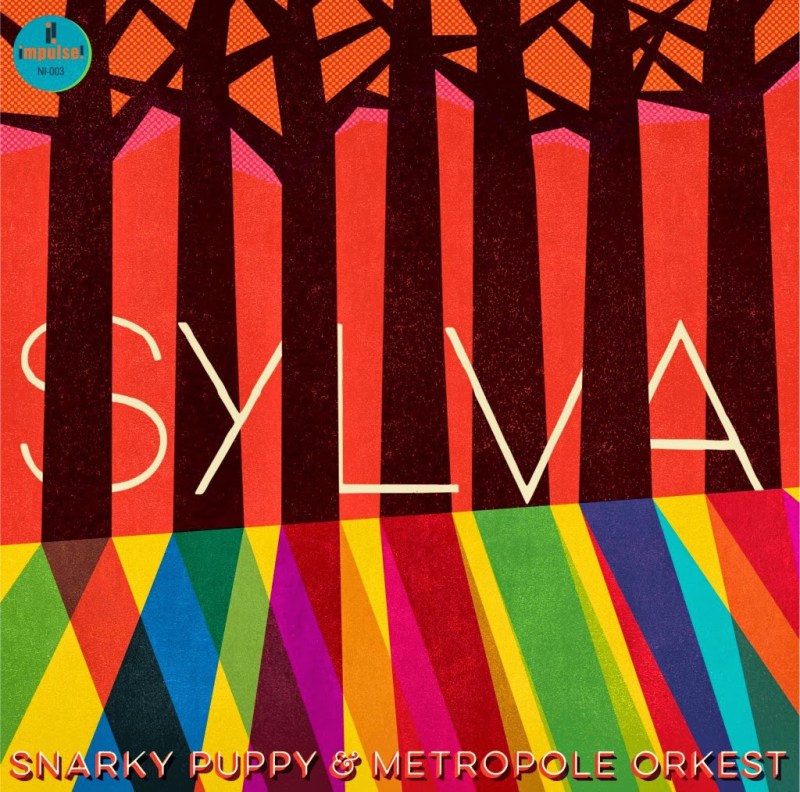They’re called Snarky Puppy (I don’t know why), and depending on the day they have anywhere from eight to 18 members. It’s hard to say what genre they fall under, if any. They won a Grammy for best R&B single of 2014, regularly play international jazz festivals and their compositions bear the fingerprints of a world of influences ranging from Brazilian baião to dubstep to straight-up funk. And just when I think I’ve figured them out, they go ahead and record a full-length album with a 52-piece orchestra. Who does that?

“Sylva,” their grand collaboration with the Dutch jazz-pop ensemble Metropole Orkest, is an ambitious project, to say the least. The hour-long, six-track instrumental album is the brainchild of bassist and bandleader Michael League — the realization of a lifelong dream to compose for an orchestra with his own group at the fore.
League wrote the entire album himself, inspired by forests around the world like the murky Atchafalaya swamps of Louisiana and the towering redwood groves of Northern California. With the assistance of Metropole conductor Jules Buckley, the bassist’s first orchestral effort is remarkably coherent and refined.
The change in instrumentation is a massive artistic leap for a band that’s most at home on the small stage, but by maintaining the most fundamental pillars of their character — improvisation, swagger and groove — Snarky Puppy manage to thrive in their new form. With arrangements that feature dynamic written interplay between sections yet still leave ample room for spontaneity, the band feels perfectly at home in the orchestra hall. “Sylva” is an evolution of their already expansive sound, a natural next step for an exceptional group as it grows into new realms of creativity.
The opening track, “Sintra,” establishes a cinematic feeling that’s persistent throughout the album, before transitioning into a restrained Latin feel. The song glides into the next track, “Flight,” without pause. Over a brooding synth-bass groove and rhythmic guitar picking, a flurry of Moog and flutes holds an airy melody reminiscent of Horace Silver’s classic “Song For My Father.” On the next track, League transforms the Orkest into a Big Easy brass band for the hard-hitting “Atchafalaya,” using shuffling percussion and fat horn hits to create a sidewalk-stomping feel. (If you ever see an orchestra marching through the French Quarter, there’s a good chance it’s Mr. League’s doing.) The track is also punctuated by the occasional “Whoa!” from members of the band and crowd — yes, like all of Snarky Puppy’s albums, this 60-person album was recorded in single takes in front of a live audience.
The undoubted highlight of the album is the 15-minute suite “The Curtain.” While some tracks lean heavily on the effect of a full orchestra sound (see “Gretel”), others seem to only use the full ensemble to provide an occasional splash of color (as in “Atchafalaya”). “The Curtain” does neither, instead cutting with both edges of the sword: It weaves through movements of cinematic string textures, a progressive jazz fusion passage, uninhibited bass and organ solos and a tear-jerking solo piano vamp, effectively leaving no page unturned, no string unplucked. It’s an emphatic effort that brings every ounce of potential packed into the super-ensemble to life.
It’s clear that League had a lot in mind for this album — after all, the collaboration is a dream come true for him. The result of his efforts is an hour filled to the brim with strokes of musical genius, novel uses of arrangement and impressively thoughtful composition coming from a man with little background in orchestral work. But while the album dances beautifully between the Orkest and the Puppies, it doesn’t coalesce into a sound fit for the billing of Snarky Puppy and the Metropole Orkest often enough. When it does, as in “The Curtain,” the result is truly stunning. When it doesn’t, we’re still treated to beautiful music, but it seems to fall short of the collaboration’s lofty potential. To be fair, the marriage of these two super groups contains so much inherent promise that the possibilities seem close to limitless. League may not have perfected his use of the Snarky Orkest, but he comes pretty damn close.
Contact Benjamin Sorensen at bcsoren ‘at’ stanford.edu.
